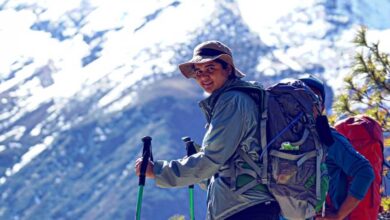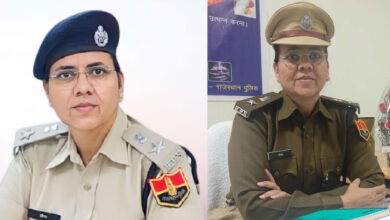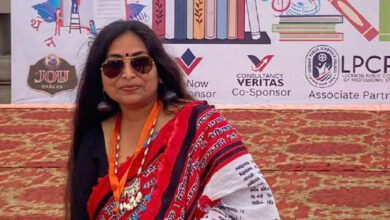Jal Purush underway to build a sustainable world through Water
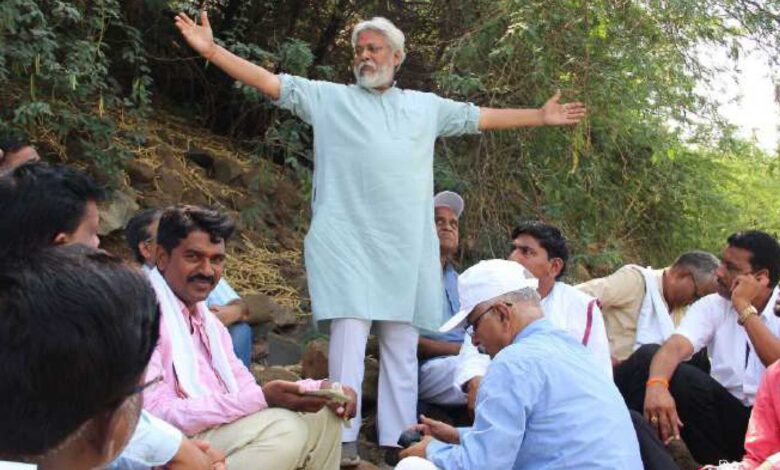
‘Waterman’ Dr. Rajendra Singh’s special interview with Journalist Anubha Jain
The year 2024 has been declared a ‘Water Peace Year’ at the United Nations 2023 water conference. During the conference, the thinkers came to a common agreement that the world can get peace through water. I met a great personality, Dr. Rajendra Singh who is working on such thought and devoting his life to creating a sustainable ecosystem. Magsaysay Award winner, renowned environmentalist, and river rejuvenator, 64-year-old Singh is known as the ‘Waterman’ or ‘Jal Purush’ of India.
Reviving rivers and rejuvenating natural water bodies, water conservation, and overcoming water crises are the key aspects Singh is focusing on.
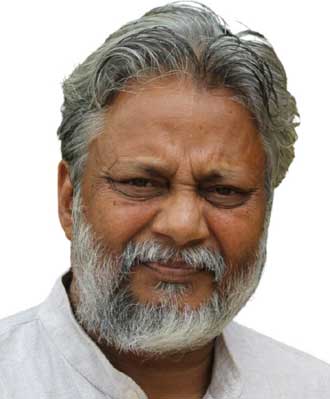
Endeavouring a vision to maintain peace globally through water and develop a Non-Violent Economy, Singh feels, “With the support of communities, we are trying to maintain a balance between humans and nature. My experience has shown that lack of water, drought, and flood cause conflict and lead to violence. With water, there is peace, security, and non-violence. People return to their roots and economies nurture nature too. As an initial step, my journey of water and peace has been completed.”
Winner of the Stockholm Water Prize, Singh joined Alwar’s Tarun Bharat Sangh (TBS) which was initially formed to support victims of a campus fire. In 1984 TBS was left to him and this was the major juncture of his life that led him into the direction of environment and water conservation. Under the leadership of Singh, TBS’s main ideology is to work for water conservation with the support of the community and hence, it promotes the community-driven- decentralized management of natural resources.
In 2013 at the time of the massive flood in London, Prince Charles of Britain invited him thrice to use his knowledge. With his expertise, he guided the engineers there to resolve the issue and assisted in the best utilization of floodwater. In a candid conversation with me, I asked him a couple of questions –
Q. Who remained your guiding force and transformed your life from an Ayurvedic doctor to a river rejuvenator?
Singh said, “At the young age of 26, in Thanagazi tehsil’s Gopalpura village of the Alwar district, my career started. I was an Ayurvedic medicine graduate and did a Master’s in Hindi literature. I joined the government service in 1980 and initiated my career as a National Service Volunteer for Education in pink city Jaipur. I was later appointed to oversee adult education schools in Rajasthan’s Dausa district. I initiated working in the direction of water conservation through the indigenous wisdom that was shared with me by Mangu Meena, an illiterate farmer. Mangu with his proficiency in soil and water made me understand that where the confined vertical fractures exist in a well, not only water finds there but also long leaves plants grow there. Whereas, unconfined horizontal fractures result in barren lands. This helped us to design suitable rainwater conservation structures to recharge aquifers (Water bearing rock transmits water to wells and springs).”
Q. As the messiah of the poor you have transformed the lives of Chambal dacoits and led them toward the path of ‘Non-Violence’ and ‘Peace’ through the availability of water. What was the focal point of the Parvati- Sairni River Rejuvenation Conference 2023?
Singh said, “Yes, under my supervision TBS has reformed the lives of over 2k dacoits of the Chambal region. We provided water into the barren lands of these dacoits and channelized them towards agriculture and farming. As a big revolution, these people dropped their guns, left the profession of looting, and have become farmers. They are leading a transformed life of ‘Non-Violence’ and ‘Peace’ just because of water. With the support of TBS and the effort of some 300 village communities, a non-violent economic system has been developed along the banks of the Sairni and Parvati rivers of the Chambal region through decentralized water harvesting structures. This has altered the dry land to water-secure land and brought peace and livelihood to the villagers residing there.
Recently, in collaboration with TBS, Rashtriya Jalbiradari, and People’s World Commission on Drought and Flood, a three- day conference was conducted with farmer dacoits where 92 people from 12 different states of India gathered with the intent to motivate those who still need to take to agriculture instead of crime for leading a respectable life. The participants got to understand how decentralized community- driven rainwater conservation methods led to the revival of the Sairni and Parvati rivers, which are now flowing even in the peak summer of May.
Q. What is the project you are working on with the Government of Maharashtra?
Singh stated, “I am also heading a national organization Rashtriya Jal Biradari which is working nationwide for the restoration of small and mighty rivers and other water- related issues. We have worked for the revival of rivers in Karnataka’s Gadag district, UP, and MP. Now with the collaboration of the Government of Maharashtra, Rashtriya Jal Biradari, is working for the revival of the rivers of Maharashtra. The program name is “Aao Nadi Ko Jaane.” Here we have formed river sentinels for over 117 rivers in Maharashtra and we give them training. We have revived two rivers of Maharashtra namely Agrani and Mahakali so far.”
Q. What are the major projects Tarun Bharat Sangh (TBS) is working on?
Singh informed in detail and said, “TBS is a pioneer in the sphere of rainwater harvesting. So far, around 14,000 rainwater harvesting structures that have restored barren lands and improved agricultural economies have been created with this approach. The other vital project of TBS is the skill development and the efficient use of water in irrigation in the Rivulet Arvari and Sarsa Basin region so that once water becomes available, it is used efficiently and effectively. River Arvari had remained dry for over 60 years and was restored by us. It was awarded the `International River Prize’ in 2004. Prince Charles during his visit to India applauded the work done by TBS. On 28th March 2000, the then President, K.R.
Narayanan, himself visited the Bhanota- Kolyala village community (where the river Arvari flows) to present the “Down to Earth — Joseph. C. John Award” to the villagers.
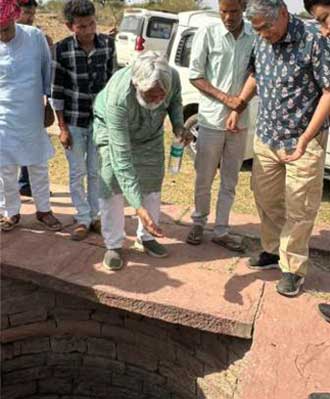
Q. As the chairman of the People’s World Commission on Drought and Flood what are your preferences?
Singh said, “The purpose of this Commission is to mitigate drought and flood and develop community resilience. Today Europe and the USA are facing severe cycles of drought and flood. The Commission is working on flood and drought management through water resource development in the Cone Valley of the USA and one of Kenya’s counties.”
TBS is a pioneer in the sphere of rainwater harvesting. So far, around 14,000 rainwater harvesting structures that have restored


